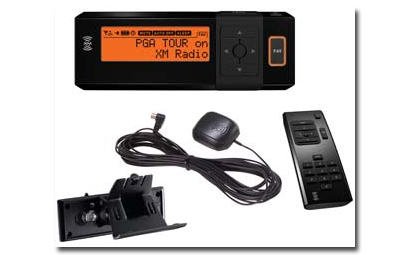|
|
 |
Knowledge Is Key
For Intelligent Decisions
Satellite Logic is a leading,
authoritative source of information in
the Satellite Industry. Located in the
heart of the Silicon Valley, Satellite
Logic provides one of the most
valuable and comprehensive
knowledge bases on the Satellite
market! This is a primary Worldwide
information center which enables our
clients to analyze, evaluate, inquire
and select their best tailored
solutions. Our company sets the
industry standards for targeted
buying leads, reflecting a dramatic
advance over traditional marketing
solutions.
|
|
|
 |

Satellite radio is an exciting new technology that allows listeners to
receive commercial-free, digitally transmitted audio. Gone are the
days of fine-tuning the dial on a radio to avoid poor reception. With
the help of orbiting satellites and a digital broadcast, satellite radio
can travel approximately 22,000 miles and never lose its crystal-clear
quality.
Satellite radios receive proprietary signals, so the required equipment
is not something generic. To hear a satellite radio provider's
broadcasts, you must buy the equipment that is specifically designed
to pick up their signals. Although most satellite radio equipment is
manufactured by electronics companies (and NOT the satellite radio
providers), each satellite radio provider uses proprietary technology
that can only be used with their service. In other words, satellite radio
equipment is not interchangeable between providers. This means that
finding equipment that will work for you is almost as important as the
other features. For example, if you need a handheld unit and only one
satellite radio provider utilizes this type of receiver, you would
necessarily have to choose that satellite radio provider.
When considering the costs for satellite radio, there are two main
costs - the equipment cost and the monthly subscription cost.
Equipment costs will need to be paid up front, then subscription fees
on a monthly basis. Since the equipment you purchase cannot be
used to switch to another satellite radio provider, you should perform
due diligence before choosing one over the other. Promotions might
be available from time to time that might give an introductory rate or
discount for pre-purchase of a term package.

The most important question to ask yourself when purchasing
satellite radio equipment is, where are you going to be listening: at
home, in the car, or both? Or do you want to have access to satellite
radio while on the go? All options are available, and XM receivers and
Sirius receivers alike allow for many listening possibilities.
Portable satellite radio receivers have become increasingly popular.
Also called plug-and-play receivers, these compact, convenient devices
allow you to listen to satellite radio at home or on the road. With the
aid of a car kit or home kit, plug-and-play receivers hook up to your in-
dash car stereo or home stereo. They offer a variety of functions,
including preset programming, storage of favourite songs, and the
ability to search by channel, artist, or song title. They also display a
songís artist, title, and genre while itís playing.
Examples of plug-and-play receivers include the XM Roady, XM
Commander, XM SKYFi and SKYFi2, and Sirius Sportster. For even more
flexibility, many plug-and-play receivers are available for use with
boomboxes.
Today satellite radio receivers are getting smaller and smaller.
Handheld devices, such as XMís MyFi and Siriusís Starmate, are what
youíll want if you plan to listen to satellite radio while walking,
jogging, working out, or traveling. Like iPods, these small receivers let
you store several hours of programming on an internal hard drive. In
addition to their tiny size and portability, these satellite radio receivers
can still be used in the home or car like any other portable receiver.
If you plan to listen to satellite radio solely in your car, consider
purchasing an in-dash receiver thatís satellite-ready and comes with
XM or Sirius capability (Pioneer offers a unit with compatibility for both
providers). In contrast to plug-and-play receivers, no wires or docking
cradles are necessary, although you will have to get a tuner.
Itís no problem to transfer your plug-and-play receiver from your car
and then enjoy satellite radio on your home stereo and home
entertainment system. But if portability isnít so important, or if you are
looking to get the best sound quality possible, larger home satellite
receivers are also available.
Besides understanding satellite radio receivers, you should know
about a few important satellite radio accessories as well. Home kits
and car kits include everything thatís needed, like cables, antennas,
mounting brackets, docking stations for plug-and-play satellite radio
receivers to work in your home or car. Boomboxes and car and home
kits generally come with antennas. However, they must be purchased
separately for home component tuners, external satellite radio tuners,
and in-dash receivers.
Satellite radio mounts - the vehicle-specific mount helps to make sure
your plug-and-play receiver is steady and secure in your car. Other
satellite radio accessories include headphones, cigarette lighter
adapters, and cassette adapters.
|
|
|
|
